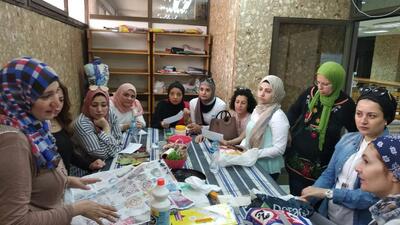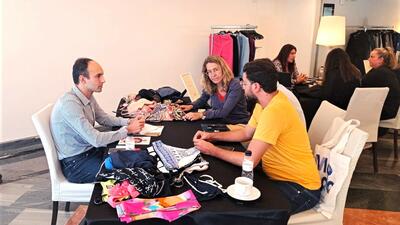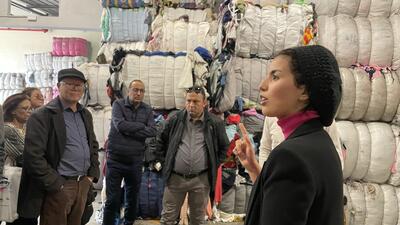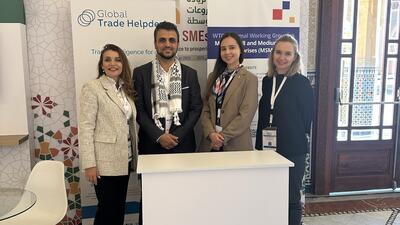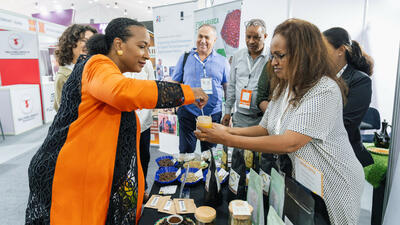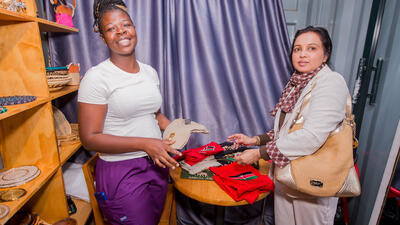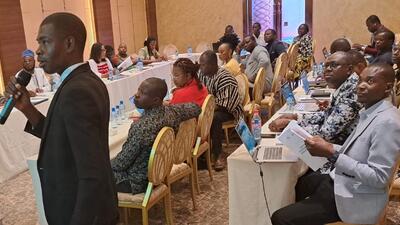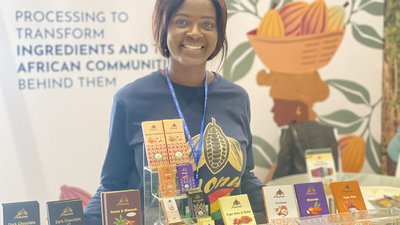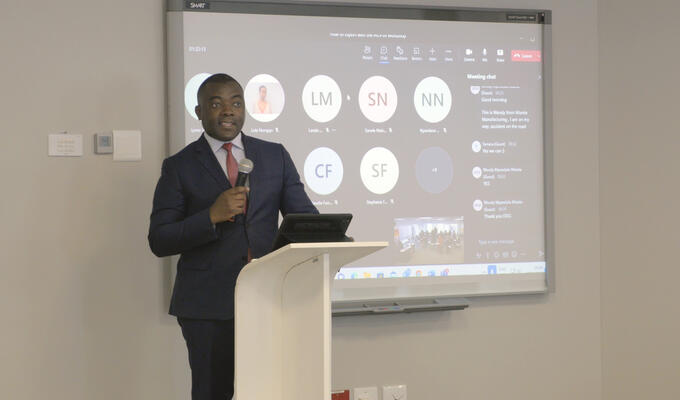


African enterprises learning how to access continental markets and navigate free trade
The African Continental Free Trade Area offers better access to regional markets. New workshops lay out how African businesses can tap into them.
African businesses looking to export within Africa’s new continental free trade area can have many questions. A new series of workshops held across five countries in September and December 2022 laid out how they can navigate the new trade environment and identify top markets in the continent.
Organized by the SME Trade Academy, ITC’s learning solutions team, these workshops were developed in partnership with Afreximbank and implemented with local partners, namely:
- The Department of Trade Industry and Competition (DTIC, South Africa)
- Kenya Trade Network Agency (KenTrade)
- Association Marocaine des Exportateurs (ASMEX, Morocco)
- Centre de Promotion des Exportations (CEPEX, Tunisia)
- Foreign Trade Training Centre (FTTC, Egypt)
The sessions were designed to be interactive and provide participants with practical knowledge, including how to:
- Identify market opportunities in Africa
- Prepare to become export ready
- Understand the documents required for exporting and how to use them
- Select one or more African markets with viable opportunities for their products
- Choose between different options for entering the market(s) selected
- Identify the different trade financing options available for their business
What’s more, the workshops were designed using the SME Trade Academy’s new technology-enhanced workshopping concept: the digital workshopping methodology. This includes interactive digital presentations, videos, exercises, trainer guides, learner workbooks, as well as online workshop pages that serve as administrative supports for the training.
Each of the “How to Export with the AfCFTA” workshops included training of trainers’ sessions, where a total of 102 local trainers were taught how to run the workshops themselves using the digital workshopping methodology. This not only gave the local partners a sense of ownership towards the content, it also enabled the training interventions to scale beyond the initial five cities of Johannesburg, Nairobi, Casablanca, Cairo and Tunis.
Each workshop ran over four days. During the first two days, the new trainers learned about the digital workshopping methodology, as well as how to facilitate and plan their “How to Export with the AfCFTA” workshops using the resources available on the How to Export with the AfCFTA Online Training Platform. During the subsequent two days, the trainers put what they had learned into practice and led sessions in front of invited participants, which mostly consisted of local small and medium-sized enterprises (SMEs). Some 142 small and medium-sized enterprises attended.
The workshops were led by master trainers and technical experts Guillaume Lamothe, Ilyas Choubaili, Rania Habib and Dorothy Tuma, with support from training programme coordinator Dorina Dobre.
“The role of the workshop was, on one hand, to train the first batch of SMEs, while on the other hand to equip the future trainers with regards to the content delivered,” said Dobre. “ITC will continue to be there to help participants access the online programme and help trainers strengthen their facilitation capacity.”
About the “How to Export with the AfCFTA” training programme
The “How to Export with the AfCFTA” training programme is the result of a partnership between ITC and Afreximbank. It combines both online and offline elements to teach current and prospective African exporters the fundamentals of intra-African trade, as well as explore the opportunities resulting from the AfCFTA.
About ITC’s SME Trade Academy
The SME Trade Academy is ITC’s learning solutions team. Through its flagship online platform, the Academy offers over 100 free online courses on a wide variety of trade-related topics in French, English, Spanish and Arabic, and boasts over 100,000 enrolments per year from over 190 countries. In addition, it provides a variety of turnkey learning solutions in support of ITC’s trade related technical assistance projects. These range from fully online products, such as e-learning courses, virtual learning spaces and virtual workshops, to technologically-enabled in-person trainings, such as digital and digitally-supported workshops, to everything in between.
About One Trade Africa
One Trade Africa works to enable, empower and enhance African MSMEs, women and youth entrepreneurs to access new transformative business opportunities created by the AfCFTA. The programme embraces a three-pronged delivery model which supports African MSMEs to compete, connect and change at the enterprise, business ecosystem and policy levels. ITC provides African MSMEs with training, advice and coaching to build capacities, connect to new and more lucrative markets, and create jobs.





